Today, it is an almost obvious question: the creation of B2B sites represents a strategic priority for companies operating in the business to business sector. A B2B website is not just a virtual showcase, but a complex tool designed to automate the sales and after-sales cycle, support purchasing decisions and strengthen relationships with corporate customers. Unlike end-consumer sites, B2B portals must respond to specific needs, offering detailed information, intuitive interfaces and advanced integrations with business systems.
The creation of a professional website requires a targeted approach, which considers the peculiarities of the reference sector and adopts the best practices of web marketing. In this article we will explore the key elements that a B2B site must include to maximize its effectiveness, ensuring an optimal user experience and measurable results for the business.
The strategic importance of the B2B site
A B2B site is not simply a platform to present products and services, but a real strategic asset for the business. Thanks to advanced functionalities and integration with management systems, a well-designed site can become a tool to improve the sales and after-sales cycle, automating processes and responding to the specific needs of corporate customers. For example, an industrial company might need a b2b ecommerce that offers customized pricing for each customer, in-depth datasheets and recurring order functionality.
Unlike B2C sites, where the focus is often on emotionality and immediacy, B2B sites focus on reliability, transparency and the ability to meet complex needs. A well-built site becomes a point of reference for customers, available 24 hours a day, 7 days a week, to provide all the information needed to guide their purchasing decisions.

Essentials for a professional B2B site
1. Professional and optimized design
One of the most critical aspects in B2B website design is the design. This is not limited to the aesthetic component, but extends to functionality and usability. The design of a website for the B2B market must be professional, clean and organized in such a way as to facilitate the user’s navigation. The clarity of the layout and speed in loading time are essential to prevent visitors from leaving the site before they have found the information they need. Mobile optimization is also a must, as many business users access sites via smartphones or tablets.
2. Clear and complete information
Another key element is clarity of information. A B2B site should include well-defined sections dedicated to the presentation of the company, its values and expertise, as well as detailed descriptions of the products and services offered. Each product sheet should include technical specifications, benefits, applications and where possible demonstration videos. This content not only increases brand reliability, but also reduces uncertainties that could hinder conversion. It is also important to provide testimonials, case studies and success stories that demonstrate the effectiveness of the proposed solutions.
3. Integration with CRM and ERP
In addition to content presentation, integration with business systems such as CRM (Customer Relationship Management) and ERP (Enterprise Resource Planning) is a must have for a professional B2B site. These tools allow you to manage the sales cycle in an automated way, from customer acquisition to product delivery, while improving inventory management and logistics operations. For example, a b2b ecommerce offering industrial equipment can integrate its catalog with the corporate ERP to automatically update product availability and simplify ordering and shipping.
One of the most widely used CRMs on the market is HubSpot. It is a user-friendly Customer Relationship Management, which allows you to manage relationships with customers and potential customers in a smart and agile way. It leads to time savings and more opportunities for conversion of contacts, if you set up the right pipelines. It has several functions that can be customized to suit the needs and size of your company. Want to know more? Book a free demo.

4. Security B2B e-commerce: an advanced online sales experience
Another aspect to consider is safety. In the B2B sector, where transactions can be high value and involve sensitive data, it is essential to ensure maximum site reliability. SSL certificates, robust authentication and regular backups are essential solutions to protect customer information and build brand trust. This is especially important for b2b ecommerce sites, where the protection of online transactions is crucial.
Advanced features for the B2B website
When it comes to b2b e-commerce, it is important to note that these platforms require much more complex functionalities than those of the classic B2C sites. Among the most requested features we find the possibility to customize catalogs and price lists according to customer, manage multi-user accounts with differentiated permissions, Provide support for recurring orders and provide detailed reports on the progress of transactions. In addition, integration with advanced B2B platforms such as IBM Websphere Commerce Suite enables you to create personalized and scalable shopping experiences.
A concrete example could be that of an electronic components distributor, whose ecommerce site must show specific prices for different corporate customers and offer the option to automatically calculate discounts on large orders. This type of personalization not only improves the customer experience, but also simplifies sales processes, making interaction more fluid and effective.
Search engine optimization (SEO)
To ensure the success of a B2B site, you can not neglect search engine optimization. SEO helps to improve the site’s visibility, attracting qualified traffic and increasing the chances of conversion. This is achieved through targeted strategies, such as the use of relevant keywords (for example "B2B site development" or "professional ecommerce"), the creation of valuable content and technical optimization of the site.
A professional ecommerce agency could, for example, offer the service of a corporate blog to share practical advice, industry analysis and guides to the use of their products. Content of this type not only improves the positioning on search engines, but also strengthens the perception of authority of the brand.
Security and reliability as the fundamental pillars of your website
Security, already mentioned above, is another crucial element in the construction of B2B sites. Protecting sensitive data, both business and customer, is a prerequisite for building trust. By adopting SSL certificates, regular backups and advanced authentication systems, you can ensure a secure and seamless user experience.
In the case of B2B ecommerce sites, security becomes even more important. Digital transactions, often of great value, must be protected from possible cyber attacks or technical errors, thus ensuring the continuity of business.

Towards the future of online B2B
In the B2B market landscape, the role of websites is evolving rapidly. More than ever, companies must develop sites that not only meet customer needs but can anticipate them with integrated solutions and advanced technologies. The implementation of professional ecommerce, in particular, is a priority for companies that want to differentiate themselves and achieve new goals in the digital market.
In Ekeria, we specialize in the creation of B2B sites and B2B and B2C ecommerce platforms designed to measure. Each project is designed to offer innovative solutions, integrated with the company’s systems and optimized to ensure high performance. Our mission is to help companies sell online, making the most of the opportunities offered by digital.
If you want to create a professional B2B website, contact us today: together we will build the future of your business. Request a free call without commitment.
.webp)

